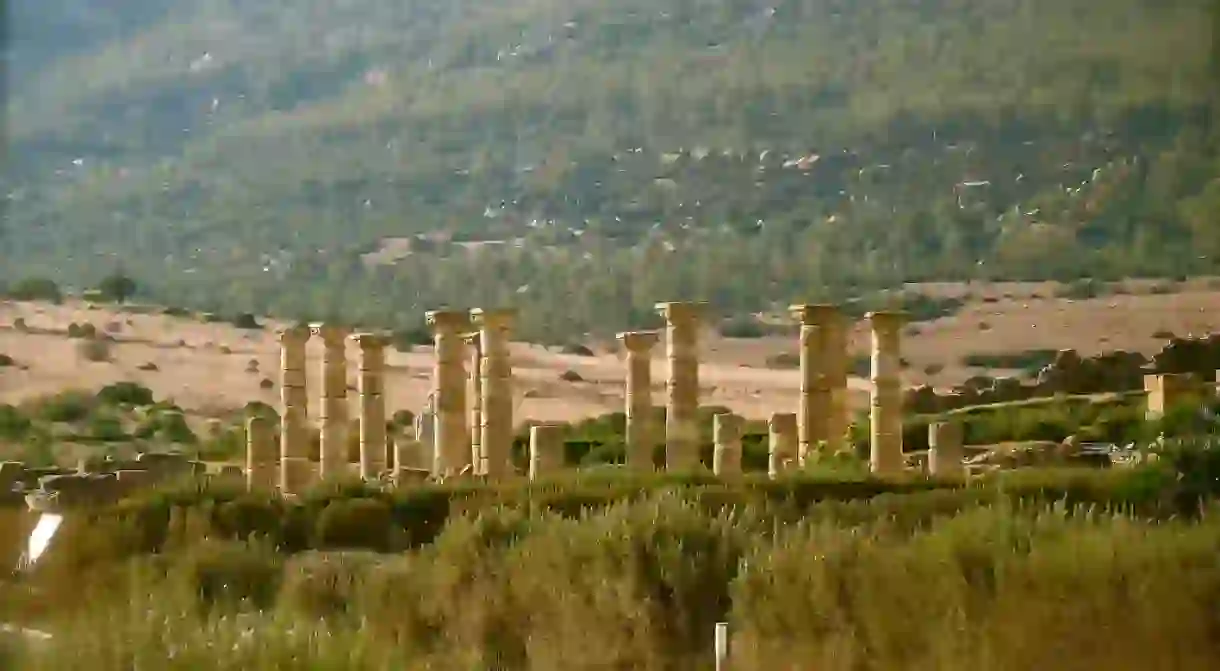The Most Beautiful Buildings in Tarifa, Spain

Tarifa, in Southern Spain, is home to several architectural gems, from a mighty Moorish fortress to attractive Baroque churches. Read on for our selection of the most beautiful buildings in this vibrant Andalusian town.
Castillo de Guzmán el Bueno
Building

Puerta de Jerez
Building

The only one of four medieval entrances still standing, the chunky Puerta de Jerez leads into the old town and once opened onto the northbound road to Jerez de la Frontera. Some sources date its construction as far back as the 9th century, while according to others it was built during the 1200s. It bears a plaque commemorating the date on which King Sancho IV took Tarifa from the Moors (September 21, 1292).
Buildings in the old town
Building

A stroll around Tarifa’s old town will bring you into contact with many beautiful structures, from stately public buildings to private townhouses decorated in brightly coloured flowers. The main square – to which all the narrow, cobbled lanes eventually seem to lead – is Plaza de Santa Maria, unofficially called Plaza de la Ranita (Little Frog Square); to understand why, take a close look at the pretty fountain at its centre.
Baelo Claudia
Historical Landmark

Some of Andalusia’s most notable Roman ruins can be found 23 kilometres (14 miles) north of Tarifa, near the lovely coastal town of Bolonia. Baelo Claudia was built at the end of the 2nd century BC and was a prosperous fishing village before being abandoned in the 6th century AD; indeed, some of the best-conserved remains are of the fish-salting facilities. The temples, aqueducts and town entrances are also well preserved.
Castillo de Santa Catalina
Building

The striking Castillo Santa Catalina, as it is known locally, was built in the early 1930s as a watchtower in an Italian Renaissance style. Although substantially fortified during World War II, it was so badly damaged by Republican bombs in Spain’s 1936–1939 Civil War that it was left abandoned for 40 years. It is currently closed to the public, but the watchtower is best admired from outside anyway.
Iglesia de San Mateo
Building

The San Mateo church is located on a street named after the Christian king who wrenched Tarifa from the Moors in 1292. It was built at the beginning of the 16th century on the site of a former mosque, but its current appearance is the result of tweaking and additions made over the centuries: the beautiful Baroque façade dates from the 1770s and the Sagrario chapel was significantly restored at the close of the 19th century.
Iglesia San Francisco de Asis
Church

Squeezed in between two elegant, whitewashed buildings in the heart of the old town, this lovely church was built in the late 16th century (the first baptism here occurred in 1584); 200 years later, though, the structure had fallen into such disrepair it was effectively demolished and rebuilt. The works were carried out between 1794 and 1797, resulting in an almost entirely new church showcasing an attractive blend of Baroque and Neoclassical styles.













